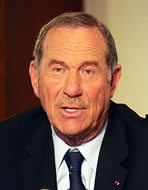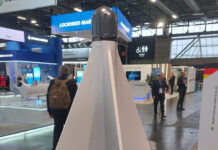 Dassault Aviation presented the annual reports for 2010 yesterday. Thanks to record-breaking deliveries of Falcon business jets, the company demonstrated an impressive 22% increase in net sales, compared to 2009. However, with orders for business jets declining, Falcon alone cannot sustain the company for much longer and Dassault is hoping to win at least one export order for the Rafale to secure its future growth.
Dassault Aviation presented the annual reports for 2010 yesterday. Thanks to record-breaking deliveries of Falcon business jets, the company demonstrated an impressive 22% increase in net sales, compared to 2009. However, with orders for business jets declining, Falcon alone cannot sustain the company for much longer and Dassault is hoping to win at least one export order for the Rafale to secure its future growth.

Despite the slowdown in the business aviation sector, the Falcon activities managed to deliver 95 aircraft, in 2010. Dassault’s operating margin for 2010 also increased to 14.1% (up from 12.5% in 2009); yet the net margin (excluding the Thales Group) remained unchanged at 9.4%.
In contrast to the overall positive performance of the company, its defense activities went through a difficult year in 2010, with new orders of € 792 million, far lower compared to the € 2,529 million received in 2009, this peak year included a follow-on order for 60 Rafale fighters from France. In fact, Dassault’s 2010 defense order book was slightly lower han 2007 in terms of new business. In actual deliveries Dassault completed and delivered 11 Rafale fighters in 2010 (compared to 14 in 2009). The same production rate is expected to be maintained for 2011.
In 2010 new orders correspond mainly to military support and development programs in France and abroad. Among these programs are the integration of ‘sensor to shooter’ capability on the Rafale, with the introduction of Damocles Laser Designation Pod (LDP) and laser guided bombs, integration of AEROS reconnaissance offering improved pod capability and the integration and qualification of MIDS-L16 Data links on the French Air Force Mirage 2000D strike fighters.
As expected, defense activities in France totaled € 606 million, 75 percent down in 2010, compared to € 2,276 million peak year in 2009. Defense exports fared slightly better, down 27 per cent to € 186 million in 2010. Defense exports included primarily integration and support programs, including the integration of laser guided bombs on UAE Mirage 2000 fighters.
The forecast for 2011 indicates a challenging year – global economic slowdown, growing competition in the business aviation sector, depreciated dollar impacting the competitiveness of European companies, reduced defense spending in Europe and abroad all present negative trends. Winning one of the tenders in India or Brazil could change the picture dramatically. “We are discussing with several export prospects. They recognized our military aircraft’s qualities during its evaluation and we are looking forward to concluding deals.” Said Charles Edelstenne, Dassault Aviation president and CEO. Among the leading prospects are Brazil and India, both are expected to announce their decision in 2011-2012. Another prospect for future improvement is the unmanned systems business, Dassault is leading an international industry group developing the European Unmanned Combat Aircraft nEUROn and has also launched a JV with BAE Systems, to develop the Medium Altitude Long Endurance (MALE) drone in response to British and French governments evolved operational requirements.

















